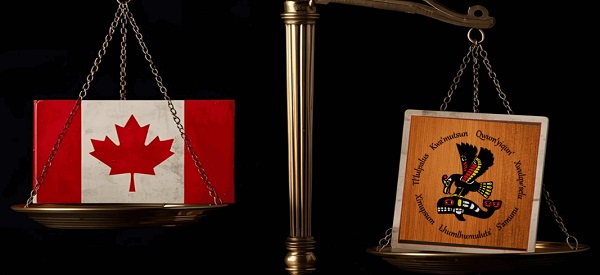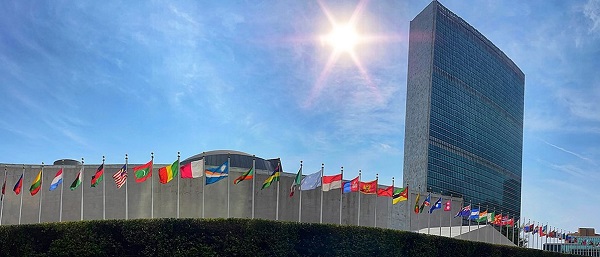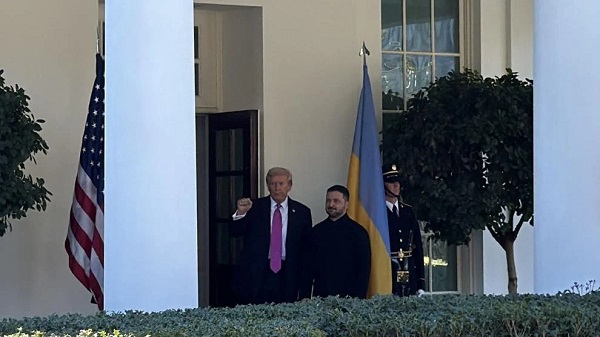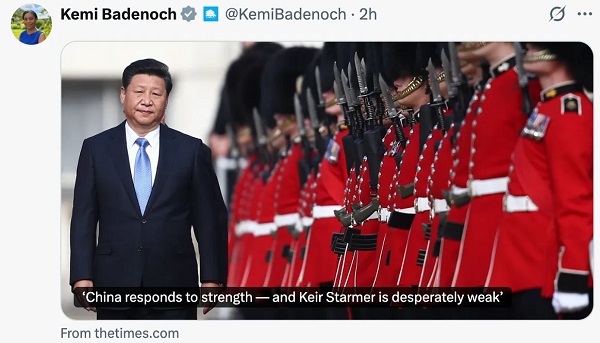Uncategorized
SKorea approves NKorea deals amid conservative opposition

SEOUL, Korea, Republic Of — South Korea’s liberal president on Tuesday formally approved his recent reconciliation deals with North Korean leader Kim Jong Un, triggering immediate backlash from conservatives who called him “self-righteous” and “subservient” to the North.
President Moon Jae-in’s move is largely seen as an effort to show he’s determined to carry out the deals despite growing skepticism about whether his engagement policy could eventually lead to North Korea’s nuclear disarmament.
Moon “ratified” the deals on Tuesday afternoon, hours after his Cabinet approved them during a regular meeting, his office said in a statement.
The back-to-back endorsements came with no prior parliamentary endorsement. In South Korea, a president is allowed by law to ratify some agreements with North Korea without consents from lawmakers.
At the start of the Cabinet meeting, Moon said in televised remarks that the ratification would help further improve ties with North Korea and accelerate global efforts to achieve the “complete denuclearization of the Korean Peninsula.”
The main conservative opposition Liberty Korea Party criticized Moon’s action, saying the deals would only undermine national security and waste taxpayers’ money.
“We deplore the fact that the Moon Jae-in government is weighted toward its subservient North Korea policy and is consistently being self-righteous and lacking communication” with parliament, said party spokesman Yoon Young-seok.
Moon, who took office last year, has said that greater reconciliation with North Korea would help resolve the international standoff over the North’s nuclear ambitions. Moon has met with Kim three times this year, and he shuttled between Pyongyang and Washington to help arrange a series of high-level talks between the countries, including a June summit between Kim and President Donald Trump in Singapore.
Since entering nuclear talks earlier this year, Kim has taken some steps like dismantling his nuclear testing site and releasing American detainees. The United States responded by suspending some of its annual military drills with South Korea but is reluctant to provide the North with major political or economic rewards unless the country takes significant disarmament steps.
Moon’s September deals with Kim were largely associated with the broader agreements struck during their first summit in April. Under the latest deals, the two Koreas are to hold a groundbreaking ceremony on a project to reconnect cross-border railways and roads and push to resume stalled economic
Moon has previously pushed to get parliamentary approval on the April agreements. But conservative lawmakers objected, saying the deals, which had Kim’s vague commitment to denuclearization, would only help the North buy time and prefect weapons systems in the face of international sanctions.
Tuesday’s ratification follows a contentious ruling by Moon’s ministry of government legislation that allowed him to skip parliamentary endorsement on the North Korea accords before ratifying them.
According to the ministry, Moon can unilaterally ratify the deals because they are largely meant to implement the earlier April accords that it says are in the process of getting parliamentary approval. It also cited a law clause that a president can ratify deals with North Korea without lawmakers’ approval if they don’t cause unspecified “significant” financial burdens to the public or require related legislation.
The opposition party disagreed, saying inter-Korean projects stipulated in the September accords would eventually require “tremendous” taxpayers’ money. It also said the deals’ mutual reductions of conventional military strength would weaken the South’s war readiness and its alliance with the United States because the North’s nuclear capability remains intact.
Moon knows how important public support is for his North Korea overture. Most of the detente projects mentioned in his summit deals with Kim were what his liberal predecessors had pursued during a 1998-2008 “Sunshine Era.” Those projects were stalled after conservatives took power in South Korea. Moon now cannot unilaterally revive those projects because of U.S.-led international sanctions.
Hyung-Jin Kim, The Associated Press
Uncategorized
New report warns WHO health rules erode Canada’s democracy and Charter rights

The Justice Centre for Constitutional Freedoms has released a new report titled Canada’s Surrender of Sovereignty: New WHO health regulations undermine Canadian democracy and Charter freedoms. Authored by Nigel Hannaford, a veteran journalist and researcher, the report warns that Canada’s acceptance of the World Health Organization’s (WHO) revised International Health Regulations (IHR) represents a serious erosion of national independence and democratic accountability.
The IHR amendments, which took effect on September 19, 2025, authorize the WHO Director-General to declare global “health emergencies” that could require Canada to follow directives from bureaucrats in Geneva, bypassing the House of Commons and the will of Canadian voters.
The WHO regards these regulations as “binding,” despite having no ability or legal authority to impose such regulations. Even so, Canada is opting to accept the regulations as binding.
By accepting the WHO’s revised IHR, the report explains, Canada has relinquished its own control over future health crises and instead has agreed to let the WHO determine when a “pandemic emergency” exists and what Canada must do to respond to it, after which Canada must report back to the WHO.
In fact, under these International Health Regulations, the WHO could demand countries like Canada impose stringent freedom-violating health policies, such as lockdowns, vaccine mandates, or travel restrictions without debate, evidence review, or public accountability, the report explains.
Once the WHO declares a “Pandemic Emergency,” member states are obligated to implement such emergency measures “without delay” for a minimum of three months.
Importantly, following these WHO directives would undermine government accountability as politicians may hide behind international “commitments” to justify their actions as “simply following international rules,” the report warns.
Canada should instead withdraw from the revised IHR, following the example of countries like Germany, Austria, Italy, Czech Republic, and the United States. The report recommends continued international cooperation without surrendering control over domestic health policies.
Constitutional lawyer Allison Pejovic said, “[b]y treating WHO edicts as binding, the federal government has effectively placed Canadian sovereignty on loan to an unelected international body.”
“Such directives, if enforced, would likely violate Canadians’ Charter rights and freedoms,” she added.
Mr. Hannaford agreed, saying, “Canada’s health policies must be made in Canada. No free and democratic nation should outsource its emergency powers to unelected bureaucrats in Geneva.”
The Justice Centre urges Canadians to contact their Members of Parliament and demand they support withdrawing from the revised IHR to restore Canadian sovereignty and reject blind compliance with WHO directives.
Uncategorized
CNN’s Shock Climate Polling Data Reinforces Trump’s Energy Agenda


From the Daily Caller News Foundation
As the Trump administration and Republican-controlled Congress move aggressively to roll back the climate alarm-driven energy policies of the Biden presidency, proponents of climate change theory have ramped up their scare tactics in hopes of shifting public opinion in their favor.
But CNN’s energetic polling analyst, the irrepressible Harry Enten, says those tactics aren’t working. Indeed, Enten points out the climate alarm messaging which has permeated every nook and cranny of American society for at least 25 years now has failed to move the public opinion needle even a smidgen since 2000.
Appearing on the cable channel’s “CNN News Central” program with host John Berman Thursday, Enten cited polling data showing that just 40% of U.S. citizens are “afraid” of climate change. That is the same percentage who gave a similar answer in 2000.
Dear Readers:
As a nonprofit, we are dependent on the generosity of our readers.
Please consider making a small donation of any amount here.
Thank you!
Enten’s own report is an example of this fealty. Saying the findings “kind of boggles the mind,” Enten emphasized the fact that, despite all the media hysteria that takes place in the wake of any weather disaster or wildfire, an even lower percentage of Americans are concerned such events might impact them personally.
“In 2006, it was 38%,” Enten says of the percentage who are even “sometimes worried” about being hit by a natural disaster, and adds, “Look at where we are now in 2025. It’s 32%, 38% to 32%. The number’s actually gone down.”
In terms of all adults who worry that a major disaster might hit their own hometown, Enten notes that just 17% admit to such a concern. Even among Democrats, whose party has been the major proponent of climate alarm theory in the U.S., the percentage is a paltry 27%.
While Enten and Berman both appear to be shocked by these findings, they really aren’t surprising. Enten himself notes that climate concerns have never been a driving issue in electoral politics in his conclusion, when Berman points out, “People might think it’s an issue, but clearly not a driving issue when people go to the polls.”
“That’s exactly right,” Enten says, adding, “They may worry about in the abstract, but when it comes to their own lives, they don’t worry.”
This reality of public opinion is a major reason why President Donald Trump and his key cabinet officials have felt free to mount their aggressive push to end any remaining notion that a government-subsidized ‘energy transition’ from oil, gas, and coal to renewables and electric vehicles is happening in the U.S. It is also a big reason why congressional Republicans included language in the One Big Beautiful Bill Act to phase out subsidies for those alternative energy technologies.
It is key to understand that the administration’s reprioritization of energy and climate policies goes well beyond just rolling back the Biden policies. EPA Administrator Lee Zeldin is working on plans to revoke the 2010 endangerment finding related to greenhouse gases which served as the foundation for most of the Obama climate agenda as well.
If that plan can survive the inevitable court challenges, then Trump’s ambitions will only accelerate. Last year’s elimination of the Chevron Deference by the Supreme Court increases the chances of that happening. Ultimately, by the end of 2028, it will be almost as if the Obama and Biden presidencies never happened.
The reality here is that, with such a low percentage of voters expressing concerns about any of this, Trump and congressional Republicans will pay little or no political price for moving in this direction. Thus, unless the polls change radically, the policy direction will remain the same.
David Blackmon is an energy writer and consultant based in Texas. He spent 40 years in the oil and gas business, where he specialized in public policy and communications.
-

 Agriculture1 day ago
Agriculture1 day agoIs the CFIA a Rogue Agency or Just Taking Orders from a Rogue Federal Government?
-

 Business2 days ago
Business2 days agoTrump Blocks UN’s Back Door Carbon Tax
-

 Business1 day ago
Business1 day agoJudges are Remaking Constitutional Law, Not Applying it – and Canadians’ Property Rights are Part of the Collateral Damage
-

 Red Deer1 day ago
Red Deer1 day agoYour last minute election prep: Common Sense Red Deer talks to the candidates
-

 Business2 days ago
Business2 days agoTrump Admin Blows Up UN ‘Global Green New Scam’ Tax Push, Forcing Pullback
-

 Daily Caller2 days ago
Daily Caller2 days agoTrump urges Putin, Zelenskyy to make a ‘deal’
-

 espionage1 day ago
espionage1 day ago“Suitcase of Cash” and Secret Meeting Deepen Britain’s Beijing Espionage Crisis
-

 Energy44 mins ago
Energy44 mins agoMinus Forty and the Myth of Easy Energy






